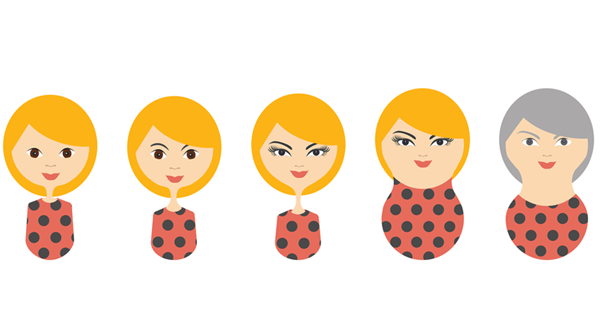Advertisement
Every person has a different taste and preference in food, but there are particular macro- and micronutrients that every woman should be including in their diet. The proportions and concentrations of these nutrients vary, depending on how age affects a woman’s body and hormone levels over time.
Here’s what each female age group should be eating, as determined by their physical needs:
Because late teens are still growing, they should consume foods rich in magnesium and calcium, like leafy green vegetables and nuts, as well as protein-dense foods, including eggs and lean chicken. Healthy fats, like omega-3 fats, should be included in the diet through fish or chia seeds to ensure that their bodies properly produce hormones. To help combat acne growth, foods rich in fiber and zinc, like fruits and vegetables are crucial.
Women who are in their early- to mid-20s should be mindful of maintaining a balanced diet to keep their bodies healthy and strong through their (late night) adventures. B vitamin-rich foods, like mushrooms, eggs, leafy vegetables, and fish, are extremely helpful for supporting the body as it processes alcohol. During menstruation, it’s important to maintain the body’s iron levels by eating foods like red lentils and beef.
For those in their mid- to late-20s, it’s advised that women begin consuming foods with high concentrations of magnesium – like beans, avocados, dark chocolate, and whole grains – to help their bodies relax and cope with greater amounts of stress. Foods that deplete the body’s stores of magnesium, like coffee and sugar, should be limited during these years.
In the 30s-40s, as women tend to think consider having children, it becomes important to boost prenatal health by consuming higher amounts of folic acid. Citrus fruits are great sources of folic acid, as are green leafy vegetables like spinach or kale.
During the 40s-50s, when women’s health might be declining due to their age, their bodies also slow on the production of CoQ10, which supports energy levels and mental facilities. Peanuts and beef contain relatively high levels of CoQ10 and several B vitamins that also help support general energy levels and mental function.
When women reach menopause, they should consume foods that will help combat the hormone-related symptoms of menopause. Foods with high concentrations of phytoestrogens, like chickpeas (hummus) and fermented soy products (tofu) will help reduce the effects of dropping hormone levels in the body.
After menopause, women’s bodies no longer have as great a need for iron – but iron should still be consumed in smaller concentrations, like from leafy green vegetables including kale and spinach. To help maintain overall body health and strength, avoid simple sugars that cause large changes in blood sugar. Stick to complex proteins and carbohydrate sources, and try to consume whole, natural foods.
These nutrient recommendations are only a general guideline. Talk to your doctor to receive the best, personalized information specific to your body and your needs.




